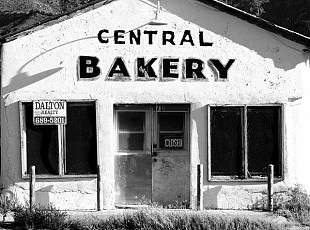What Worries Small Business: Uncertainty and ObamaCare

Small business owners aren't exactly hopeful about the future of the economy. According to a survey published earlier this month by the Chamber of Commerce, 79 percent say the U.S. economy is on the wrong track. The small business owners surveyed have lots of worries: 77 percent think higher energy prices are an immediate threat to their business, 52 percent think the tax code should be less complex, and 78 percent say they are concerned about federal debt and deficits. At the top of the list for the last two years, though, have been generalized concerns about economic uncertainty. In April, however, that changed: the requirements posed by ObamaCare are now the biggest concern for small business.
That's hardly surprising given the tough choices many businesses will have to face. Starting next year, companies with more than 50 employees will have to either provide sufficient coverage to their employees or pay a per-employee fine.
Earlier this week, The Wall Street Journal reported on several businesses choosing to pay the law's penalty for not offering insurance rather than comply with the law's health insurance requirements. In some cases, that means dropping insurance for employees who already have it. The Journal story profiled Rick Levi, an Iowa business owner who run a cafeteria management service with 102 employees. Currently, he spends about $140,000 each year insuring 25 of them in managerial positions. But once ObamaCare kicks in next year, he expects to drop coverage for those employees, and pay $144,000 in fines instead. The alternative—complying with the law's employer coverage requirement—would cost an estimated $500,000.
Levi isn't the only small business owner facing tough decisions under the law. Last month, The New York Times reported on a San Diego bakery struggling to decide how to meet the law's insurance requirements. Adding coverage for all of its workers would cost about half of its profits. Raising prices to cover the cost of insurance might make it uncompetitive with smaller bakeries not subject to the fine. That's why the bakeries owners indicated they were considering reducing their 95 employee firm down below the 50-person mark—firing some workers and converting others to private contractors.
Other firms, meanwhile, don't even know what sort of choices they face under the law. Last month The Washington Post profiled Virginia café owner Jody Manor, who employs 45 people—but still doesn't have clear information on how the law might affect him, especially if he decides to expand. As the Post reported:
If he brings in just five more, his business would soon be subject to new minimum coverage standards under the 2010 law — and he does not know whether his current health plan would meet this threshold of coverage or how his premiums might be affected.
"These changes are less than a year away, and I still have no information about how much our premiums are going to cost," said Manor, owner of Bittersweet Catering, Cafe and Bakery. "It definitely gives me pause when thinking about adding another location."
Nearly three years after the health-care law was passed, federal regulators have only recently begun to define its terms. Major pieces of the overhaul, such as state-run exchanges that will serve as marketplaces for qualified health insurance plans, have yet to take shape, and several rules remain unwritten. Consequently, the picture remains anything but clear for small-business owners, some of whom have been warned that their premiums may spike and that their current coverage may fall short.
For employers like Manor, worries about ObamaCare and worries about uncertainty are one in the same.


Show Comments (163)